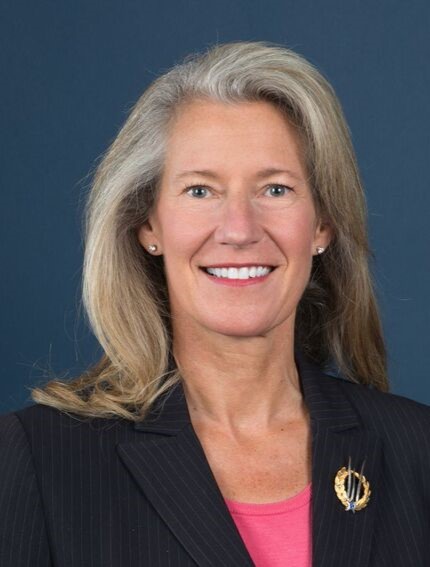
Board Chair

MRO President and CEO
From the Board Chair and President and CEO
Dear Members and Stakeholders:
Navigating increasing industry and regulatory complexities were important discussions at the second quarter MRO Board of Directors meetings this week in Saint Paul, Minnesota. North American Electric Reliability Corporation (NERC) Trustee, Susan Kelly, and Harvard Kennedy School’s Raymond Plank Research Professor of Global Energy Policy, Dr. William Hogan, provided keynote remarks.
Kelly began with information on the business plan and budget process for NERC and the Regional Entities, noting that NERC’s budget oversight role is to ensure the Regions have the resources needed to carry out delegated functions. She responded to questions on key business drivers, including the expanding risk landscape, energy policy challenges, and complexities around standards development and enforcement. The next iteration of the ERO Enterprise Long-Term Strategy, anticipated to be approved in December 2024, will serve to guide ERO Enterprise activities through the 2026-28 budget planning cycle. Kelly briefly discussed risks associated with inverter-based resources (IBRs) and highlighted the collaborative way in which NERC and the Regions are responding. She also provided her thoughts on risks and opportunities presented by Artificial Intelligence (AI), emphasizing that NERC will continue to prioritize data security and is working with the Regions to identify responsible ways to leverage AI.
Hogan — who has been actively engaged in the design and improvement of competitive electricity markets in many regions of the United States, as well as around the world — discussed the implication of near-term climate policies on power systems and energy markets. He focused his remarks on the social cost of carbon and associated policy recommendations, which play a major role in larger policy discussions. Hogan posited that climate change presents a “wicked problem” that is difficult to solve because the scale is global, the duration covers many generations into the future, and the uncertainties seem overwhelming. He suggested the social cost of carbon can provide a standard for what we do and how much is enough, but cautioned there are many critical uncertainties and the continuing debate around utility discount rates is a central problem. He provided insight on the difficulties of transmission expansion as a solution to connect renewables with electricity demand because of the complicated web of regulatory bodies and other entities with decision-making authority. Hogan stressed that broad participation will be required to meet this global problem.
The board also heard from MRO’s Director of Reliability Analysis, Bryan Clark, on the status of the ERO Enterprise IBR Registration Initiative. The initiative is part of a broader strategy to address challenges and reliability issues associated with the increasing penetration of IBRs on the bulk power system – a significant portion of which fall under the threshold of NERC registration and are not required to comply with mandatory Reliability Standards. Clark informed the board of work underway to meet a Federal Energy Regulatory Commission (FERC) directive requiring NERC to identify and register owners and operators of bulk power system-connected IBR resources by May 2026. He highlighted ongoing coordinated activities across multiple stakeholder groups to raise awareness of IBR challenges and risk, develop mitigation strategies, enhance the Reliability Standards, and coordinate communications with potential new registered entities.
Also at the meeting, we welcomed new board member Tim McCollough from Rochester Public Utilities who will finish the term of a vacated Municipal Utility Sector seat and acknowledged departing board member Maurice Moss for his dedicated service on the board.
We also celebrated the recipient of MRO’s 2024 Diamond Award, Udhay Ganesan, Principal RAM Engineer, CIP. This award recognizes a current MRO employee who has demonstrated leadership, hard work, and dedication to help drive and implement positive change and innovation across the organization.
In closed session, the board heard reports on MRO’s 2024 corporate metrics, the Corporate Risk Management Program, the Compliance Monitoring and Enforcement Program, and security-related activities. The board also discussed the draft 2025 Business Plan and Budget, which is slated for approval on June 20.
Committee Reports
The board’s Organizational Group Oversight Committee (OGOC) held a closed risk roundtable the day before the board meeting to discuss energy policy, which was identified as a new risk in the 2023 ERO Reliability Risk Priorities Report. Attendees included members of the board, key staff, and members of MRO’s three advisory councils (Compliance Monitoring and Enforcement Program, Reliability and Security). Discussions were focused on the intersection of state, provincial and federal policies and the reliability commitments of grid planners and operators. The ERO Enterprise is part of a complex regulatory structure, with multiple jurisdictions and levels of government—each with different interests and desired outcomes—overseeing various aspects of grid planning and operations. Complicating this structure is an inherent interdependence with other sectors, like natural gas and transportation. Active policies related to decarbonization, decentralization, and electrification present opportunities to engage with decision makers at various levels in a consistent and collaborative way – bringing visibility to potential reliability impacts to the forefront.
The Finance and Audit Committee reviewed year-to-date financials and provided an update on the timing for approval of the draft 2025 Business Plan and Budget. The committee recommended the board appoint Baker Tilly as the independent auditor for MRO’s 2024 financial statements.
The Governance and Personnel Committee reviewed HR and talent management activities, which included a comprehensive compensation study, 360 leadership reviews, and succession planning. The committee also discussed board composition and vacant or soon to be expiring seats on the board, as well as independent director compensation.
Board Actions
The board passed the following resolutions during the meeting:
- Appreciation of outgoing board member Maurice Moss.
- Appointment of Baker Tilly, LLC, to audit MRO’s 2024 financial statements.
- Approval to nominate Independent Directors Jeanne Tisinger and Eric Schmitt to the members for reelection to the board.
- Approval of Independent Director compensation for 2025 in the amount of $90,400, with compensation for serving as board chair or committee chair at $12,000 and $10,000, respectively.
The topics discussed at the meetings this week underscore the urgency and scale of the changes we are experiencing in our energy landscape – requiring us to remain vigilant and evolve. The rich discussions reflect the region’s unwavering commitment to reliability and security of the North American bulk power system.
You can read more about the discussions and actions taken at the second quarter board meeting in the full meeting minutes, which will be available on MRO’s website soon.
Thank you for your participation.
Sincerely,
Dr. Dana Born, Board Chair, and Sara Patrick, President and CEO